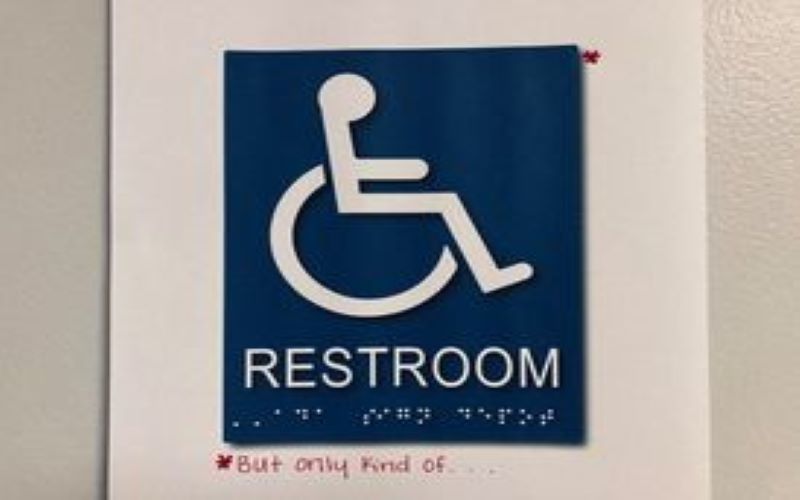Bathroom Barriers and the Role YOU have

Micah Pederson
I am a mom to two children biologically and many children through foster care. My husband and I have been married three years. Our foster home is a sp...

The length of the list of basic human rights I learn are denied to many never ceases to surprise me.
While I recognized a handful of these issues before motherhood, becoming a mom (specifically to children with disabilities) has caused both my awareness, anger, and action regarding these most important matters to grow exponentiality.
I am thankful for the parenting journey I am on and the situations I encounter because they grow my awareness of these injustices to a degree that never would have been reached had I not been so personally affected by them.
There are so many things much of the population takes for granted each day, often without even knowing it.
For instance, access to a restroom.
One of the frustrating barriers disabled individuals and their caretakers face is lack of accessibility to appropriate toileting accommodations.
While most of the world doesn’t think twice about the kind of bathrooms that may be available in public, my family and our precious children with medical needs must consider and plan around bathroom access each time we leave the house.
Easy access to toileting in a way that preserves privacy and dignity should not be something that has to be fought for. It should be common sense, automatic.
There should be no conversation to be had about it.
Yet, that is not our reality.
Many public places fail to have enough usable wheelchair accessible stalls if any at all.
Beyond that, there is the issue of space for changing.
As a mom to babies and small children, I have found myself frustrated by the fact that many public bathrooms don’t even have baby changing stations.
But at least I can usually lay my little baby or toddler across my lap or on a counter to have their diaper changed.
What about those who are older children, teens, and adults who use diapers, medical equipment, or physical assistance to meet their toileting needs?
While I know that inclusive bathrooms exist--offering adult-size changing areas, substantial room for wheelchairs, etc--I have never seen one in person despite having parented older children with disabilities for six years.
Rather, I have found myself changing and assisting my loved ones on the dirty floors of vehicles or avoiding certain travels and gatherings where I know accessibility will not be offered.
It seems that many businesses are hesitant or unwilling to do what it takes to offer truly inclusive toileting areas.
The need to use a restroom is not something individuals can simply choose not to have.
Every single person needs a safe, comfortable, usable space to take care of their toileting needs.
So why is the provision of such spaces not a greater priority to so many public places?
Maybe they have gotten by without it for so long they don’t think it matters.
Perhaps they truly have no idea how inaccessible their spaces are.
Whatever the reason, we must raise our voices and demand change in this area.
The voices of the disabled community are even more powerful when joined by other voices, by YOUR voice.
The more voices raised, the greater capacity we have to cause waves big enough to create true change.
We need YOU. So how can you help?
-Educate yourself.
One of the greatest causes of lack of accessibility is simply that people don’t know.
People who do not have certain needs don’t usually place themselves in the shoes of those who do.
Choose to be intentional about learning about the accessibility in public places near you.
Start taking mental notes of what places do or don’t offer appropriate accessibility.
-Speak up.
When you notice a business does not offer accessible toilet/changing spaces, mention your observation to the staff.
If you encounter a business that does offer accessible spaces, say something then too!
Make a point of mentioning how much you appreciate their inclusivity and tell others so the business can receive the support they deserve.
-Spread the word.
As you yourself come alongside disabled individuals as an advocate and ally, help make the issues known to those in your circles so they too can gain knowledge, understanding, and opportunities to advocate.
The fight for inclusivity and accessibility does not belong only to those needs are not being sufficiently met.
The fight belongs to every one of us.
When we battle on behalf of those around us, we become stronger as a whole and remind ourselves of who they are and who we are: simply human and simply kind.
Simply humankind.


